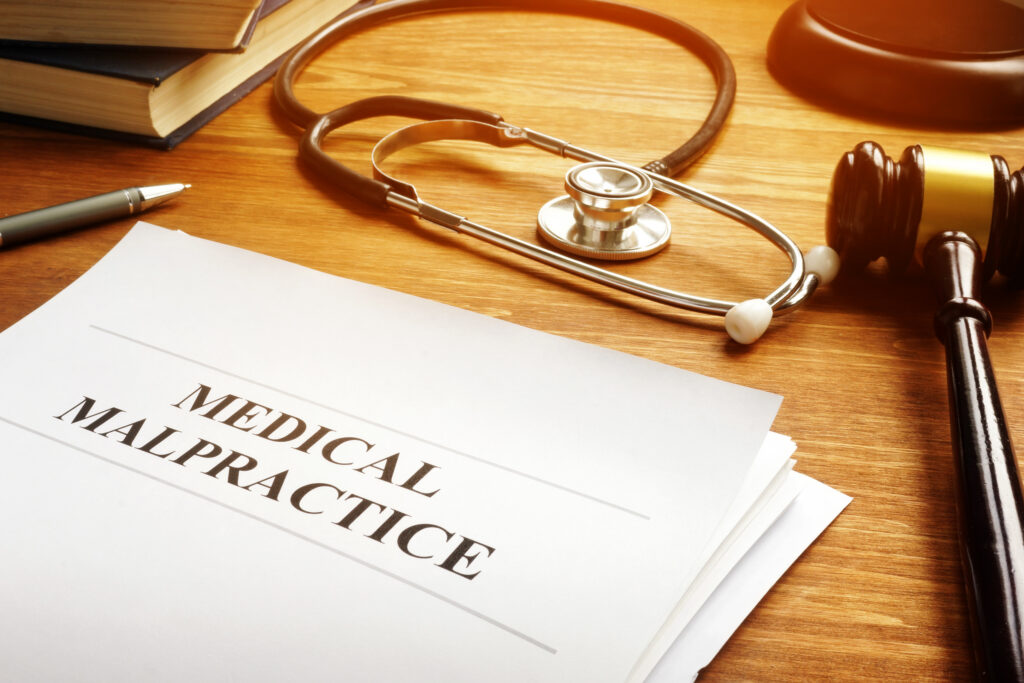Erie, PA Spinal Cord Injury Lawyers
Experienced Personal Injury Lawyers Advocate for Clients Suffering from Spinal Cord Injuries in Crawford County, Erie County, and Across Pennsylvania
After a severe spinal cord injury, it may be impossible to ever truly be made whole again. Spinal cord injuries can impact every aspect of a person’s life even if the injury is not severe enough to cause paralysis.
Spinal cord injuries can be incurred in any number of ways, and we have successfully represented clients who have been injured in motor vehicle accidents, slip and fall accidents, workplace accidents, construction accidents, and even through medical malpractice.
Regardless of how you sustained your injury, the experienced Erie, PA personal injury lawyers at Purchase, George & Murphey, P.C. are committed to fighting for justice for clients who have sustained spinal cord injuries through no fault of their own.
Spinal cord injury victims often require lengthy hospital stays, surgeries, and ongoing physical therapy or rehabilitative care in order to recover to the extent possible—and many patients never completely recover.
Our spinal cord injury lawyers cannot turn back the clock, but we do have the skills, resources, and experience necessary to fight tirelessly to make sure you get the maximum compensation possible in your case.
Contact us today for a free consultation to find out more about how we can help you with your injury claim in PA.
Understanding How Spinal Cord Injuries May Occur
The spine is an important and extensive area of the body and, as such, spinal cord injuries can range from the relatively minor to the catastrophically severe. One fact that strongly influences how severe the results of a spinal cord injury are likely to be is where the injury is located within the spine. At the most basic level, the spine is divided into four primary regions, which include:
- The cervical spine. The cervical spine is the upper vertebrae in the spine, located in the neck area, and is where the most severe of spinal cord injuries are likely to occur. The function of the arms, hands, and diaphragm are dependent upon the proper functioning of the cervical spine.
- The thoracic region. The thoracic region of the spine is the middle area of the spine, and is responsible for ensuring the proper function of the chest and abdomen.
- The lumbar region. Located lower in the spinal the lumbar region of the spine controls an individual’s legs, as well as feet and toe movement.
- The sacral area. The sacral area of the spine controls functions such as bowel, bladder and sexual functions.
In general, the higher on the spinal cord that the injury is located, the more serious the injury will be—because every bodily function below that level may be impacted in some way.
Dedicated Lawyers at Purchase, George & Murphey, P.C. Provide Skilled Counsel to Accident Victims in PA Who Have Sustained Spinal Cord Injuries
You do not have to suffer from paraplegia or quadriplegia, or any type of paralysis, in order to pursue a claim for compensation for your spinal cord injuries. In many cases, a spinal cord injury will cause severe side effects and consequences wholly apart from any inability to use your arms and legs—and these ongoing physical issues can be just as damaging to your quality of life. Some common effects of a spinal cord injury include:
- Chronic pain,
- Loss of bladder or bowel function,
- Ongoing tingling sensation in the limbs or abdomen,
- Numbness,
- Sensory deficits,
- Digestive problems,
- Inability to breathe properly and freely,
- Issues with blood pressure regulation,
- Infections,
- Problems with sexual function.
Any one or more of these effects can cause depression and anxiety, require special medical devices and will often cause you to incur ongoing medical expenses that may not always be covered by health insurance. At Purchase, George & Murphey, P.C., our experienced team of personal injury lawyers is dedicated to fighting to obtain full and fair compensation for clients who have suffered spinal cord injuries in accidents caused by a third party’s negligent, reckless or intentional actions. We know that we cannot obtain enough compensation to return you to your previously healthy life, but will fight to win the compensation necessary to ensure that you are protected financially going forward.
Contact a Seasoned Spinal Cord Injury Lawyer in Pennsylvania for a Free Initial Consultation
Call our offices or fill out this online form, to schedule a free consultation with an experienced spinal cord injury lawyer today. This initial meeting does not create any obligation to retain our services, and we will provide you with our honest and informed opinions about your options for recovering compensation. For your convenience, we have three office locations located at 2525 W.26th St., Erie, PA 16506, 310 Chestnut St., Suite 111, Meadville, PA 16335 (in the Masonic Building) and 68 East Main Street, North East, PA 16428.
Frequently Asked Questions About Spinal Cord Injuries
How can you prove that someone else should be held financially responsible for my spinal cord injury?
We begin every case with an in-depth investigation designed to determine how the accident that caused your injury occurred—and whether another party’s negligence or recklessness contributed to causing the accident. The scope of this investigation will vary depending upon the type of accident involved, but will typically entail investigating the accident scene, interviewing witnesses, analyzing any available medical records, safety reports and accident reports, and consulting with expert witnesses to gain a better understanding of why your accident took place, as well as the potential consequences of your injury. We can then proceed based on any number of legal theories—for example, in a case involving negligence, we would work to establish that the negligent party owed you a duty of care, breached that duty and thereby caused your spinal cord injury.
What is the difference between a complete or incomplete spinal cord injury?
A complete spinal cord injury means that there is a total loss of sensation in, and ability to move, a region of the body below the point in the spine where the injury occurred. In an incomplete spinal cord injury, some movement and function are retained, but that movement and function will be impaired to some degree. You do not have to suffer from a complete spinal cord injury in order to pursue a claim for compensation—the severity of the injury will only impact the level of compensation that will be available in your case.













